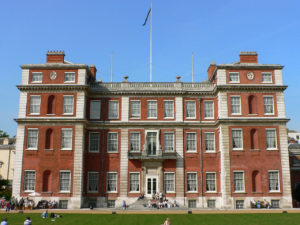by Dr Balasubramanyam Chandramohan, Senior Research Fellow
The recent events that led to change of leadership in Zimbabwe resulted in the creation of a ‘new’ Zimbabwe. However, there are more continuities than changes in the power structures at the systemic level, and the contents of the inaugural speech of the incoming president have similarities with those of the inaugural speech given by the outgoing president thirty-plus years ago. The rhetoric of being an inclusive head for all citizens of the country and the large-hearted gesture of not aiming for revenge are the right type of things to say on the occasion.
The ‘new’ Zimbabwe of 2017, however, is born into a very different global context compared to the one that marked its independence in 1980. Hence, any potential outreach by the country to link up with Malawi and Zambia, which were in a regional – Central African – federation previously, with neighbours in the Southern African Development Community (SADC), and Africa in general has to be seen against broader developments in geopolitics beyond the African continent.
While solidarity based on shared historical experience and cultural affinities can be leveraged in the case of neighbourly support, wider processes at work internationally have resulted in attitudinal changes and a new normal that is underpinned by revived nationalism and focus on pragmatics of trade and commerce rather than transnational solidarity based on specific ideological affiliations. No longer can Zimbabwe rely purely on ‘solidarity’ and historical support of even countries that actively supported liberation movements in the past.
As a country rich in natural resources and human capital, ‘New’ Zimbabwe needs to leverage its potential quickly to meet the raised expectations of the public. To achieve this goal, it has to seize the opportunity to redefine its links with the Commonwealth, following its past suspension and subsequent withdrawal from the organisation. The Commonwealth, not being based on any binding international treaty, does not command economic resources that could be diverted through central action to wipe out the huge debt that the ‘new’ Zimbabwe has in order to provide a new beginning. However, it could offer effective help in other areas such as using its ‘soft power’ through formal and informal networks to enable the ‘new’ Zimbabwe to pursue policies and programmes that can make an impact in the short/medium term. The benefits of such interaction for Commonwealth member states include enhanced opportunities to interact multilaterally, or even bilaterally, with a country rich in mineral, and agricultural resources, and one that celebrates links to an ancient civilisation.
The benefits of the win-win relationship, however, can be realised only through some nimble diplomacy. Given the continuities that underpin the transition in Harare, especially respect for the former President as an elder statesman and a national hero of the liberation struggle, disowning his rhetoric and analysis of Zimbabwe’s relationship with a prominent member of the Commonwealth – the UK – would not be easy. Liberation struggle/war veterans provide political legitimacy within the country for the ‘new’ leadership. The challenge for the Commonwealth, on the other side of the picture, is that its procedures for readmitting a member are complex and instant announcements of the ‘return of the prodigal son’ could violate its norms and practices and damage its own credibility as a rule-governed and process-focused organisation.
The Commonwealth is characterised by processes and practices that have survived/adopted/adapted during its historical journey from an ‘old’ (colonial) to ‘modern’ (post-colonial) institution. The ‘new’ Zimbabwe in its international outreach needs to engage at a political level with Commonwealth’s core base, the Commonwealth Secretariat, but also use its other intergovernmental organisations such as the Commonwealth Foundation, which focuses on civil society, and the Commonwealth of Learning, which focuses on ICT/distance education. The ‘new’ Zimbabwe might find the Commonwealth Secretariat’s work helpful — on debt management, trade analysis (its claim of cost saving of about 20% in intra-Commonwealth trade), youth development, etc. Commonwealth’s several Accredited and/or Associate organisations could provide practical help and facilitate collaborations right across the 50-plus countries or in specific sub groupings (for example, South-South Scholarships for students).
Zimbabwe’s participation in events organised by the Commonwealth could bring significant benefits through governmental and people-to-people interactions. While the bi-annual summit meetings of Commonwealth Heads of Government provide a prominent platform to raise the international profile of a country, the periodic meetings of ministers help to discuss and address issues in a collegial manner. In 2017, for example, the Law Ministers Conference led to the establishment of the Commonwealth Secretariat’s Legal Exchange, a knowledge portal that can support member countries in specific legal matters; and, the Youth Ministers Conference approved the setting up of the Commonwealth Higher Education Consortium for Youth Work.
However, the potential impact on Zimbabwe of the UK’s decision, following a referendum, to withdraw from the European Union is unclear at this stage of negotiations between the UK and the EU. Currently, the UK contributes to the EU’s budget, which is used, among other activities, to fund the flagship programme to support Africa, Caribbean and Pacific (ACP) countries (including Zimbabwe) under the Cotonou ACP-EU Partnership Agreement of 2000. It is not clear if UK’s withdrawal (and the consequent diminished overall funds available to EU) will directly affect Zimbabwe and other ACP countries. It is also unclear if UK, once out of the EU, will put in place a replacement. If it does, would it be a UK-only project or would Commonwealth, another multilateral grouping that UK is a member of, be the natural/preferred choice for management and delivery?
In any case, for the Commonwealth, a multi-faceted engagement with the ‘new’ Zimbabwe could add another member state and open new trade and other opportunities to smooth over the fallout from its richest country embarking on a voyage into uncharted waters. However, much would depend on UK’s approach, if it decides to channel its enormous sympathy and interest in Zimbabwe bilaterally (as the Minister for Africa rushing to Harare) or multilaterally, via the Commonwealth, especially in view of the hosting of the Commonwealth Summit in London in April 2018.
Finally, there is the elephant in the room, China. One needs to watch the space: its involvement — as speculated — in the ‘regime change’; its reported strictly commercial approach to safeguarding the influence/enormous resources already invested; and, future attempts to limit the charms of new suitors such as India, Japan (or India-Japan) or even US and UK beyond letting them bring new cash/legitimacy to avoid the risk/real possibility of further economic collapse.
My next penny in the wishing well, though, is for seeing Zimbabwe back in the Commonwealth.



Recent Comments